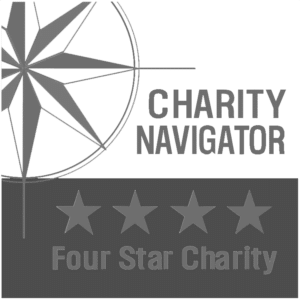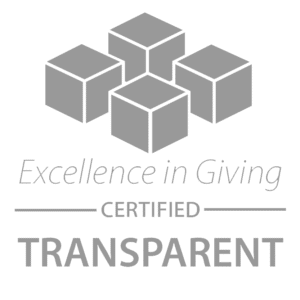You’re listening to Together by AGCI. I’m Marisa Butterworth.
I recently had a chance to sit down with my pastor of the last 10 years and we talked about how becoming an adoptive father led to an entire movement at our church. After visiting a government run orphanage in Ethiopia, God, took he and his wife’s personal heartbreak for the country and opened them up to share the need with their immediate community. Over the years, they were amazed by how many thousands of people partnered with them and adopted this cause as their own. I love hearing the story because, well, it’s my story. And my pastor of 10 years also happens to be my husband, Jesse. I hope that our story inspires you today.
Thanks for joining me today on this podcast, Together by AGCI, hosted by me. And I’m so excited to have you as a guest.
Well, thank you to be honest, I would’ve done this anyway, but you also told me yesterday that I had to, so it’s a double, it’s a double, I would do it no matter what. Well, thank you, honey. I appreciate it. And I did threaten you. Oh gosh. Well, I’m excited really, because I think you have a really interesting story to tell, and obviously I was a part of that.
So I feel a little bit weird interviewing you, but I really wanted you to just, um, share your part of the story of how we became, um, maybe as a family, more, um, connected to AGCI and what that ended up leading to, um, vocationally and, um, you know, with our church and all that kind of good stuff. So I guess the first question that I would just ask you is, um, and I obviously know this, but for everyone else, how did you first become connected to AGCI and you know, what did that look like? Yeah. We first got connected to two AGCI through our adoption of our daughter Harper. And that was, uh, I mean, when we started the process, what 12 years ago is that right? Yeah. Almost yeah. About 12 years ago. Yep. Yeah, yeah, yeah. So that’s how we first got involved and we were not thinking of it. I mean, we were, we were solely in it to get, bring our daughter home. And then through the process, we were so impressed by, um, AGCI and the organization and the way that they cared for families. And, uh, but most specifically the way they cared for vulnerable kids and the way they wanted to help them, you know, in the way they could, by staying unified with their, with their birth families, if at all possible. And that was something that I being fairly new to adoption at that point.
That was something that I really hadn’t even considered. And so the more that we, um, or I should say, ah, you’ve always been way ahead of me on this stuff, but the more that I’ve become educated on this stuff, I’ve been, um, just very impressed by the way that AGCI is really looking out for keeping kids with their, um, with their birth families, um, and or their extended families and keeping them in their kind of, you know, their, their, their towns, their cities, their villages, their nations, um, if at all possible. And then when that is not possible, then looking for a better future for those kids as well. Yeah. I mean, I think I had a similar experience when we started the adoption process. I don’t think either of us had really thought through everything right. Of what this all look like for kids. But as, as we were waiting, we waited three years to bring Harper home from Ethiopia. And there is, there’s so much that went into that, but there was a point in my, um, heart and mind that I, I realized the loss that Harper was going to be going through. I didn’t know who she was then. I didn’t know what, how old she was, but I had that moment of experiencing grief for the loss that my child was going to experience that would lead her to being with us.
And, um, as time has gone on, I’ve said this before, lots of times, but I just, um, she’s my baby, she’s my daughter, she’s all Butterworth poor thing, but I would have wanted her to have been able to stay with her birth family in Ethiopia. And I think for me, that’s what, um, struck me as well with AGCI that that’s what they were fighting for for these kids in the first place. I hadn’t seen that before. I, so would you tell us all about your experience when, especially our second trip to Ethiopia? When we went to one of the government orphanages Harper was, um, at Hannah’s hope, which was an AGCI kind of transitional home at that point where she got amazing care, but one of the days that we were there, they took us to a nearby government orphanage. We, you just talk about your experience there. Yeah, I was, uh, I mean, both you and I were absolutely. I mean, it was shocking, you know, first of all, it was shocking to go in and see the conditions of this orphanage. But secondly, it was shocking to see the stark contrast between where are where Harper and those other kids were being cared for at hand is hope and the AGCI home versus the government orphanage.
And I mean, we went in and it was just, um, I mean, if wherever the first room we went in first, they said, no, no phones, no pictures whatsoever. And, um, and we went and I, and initially I thought, well, you know, sure to protect the identity of the kids. And then I figured out pretty quick, I think it was because they were taking, they were embarrassed by this, you know, by what was happening there. And it was just walking in, I mean, specifically the one that’s burned the most into my mind is going into the room with the babies and that there were just, you could, um, you know, we found out later you can kind of tell who the newer babies were because they were still crying and they were, and as we’re going by, oh, the other thing they told us was we can’t hold the kids and that was brutal. And so as we’re going by, there was bait, there were babies and there were, I don’t know, two or three, sometimes four babies per, um, crib or bassinet, you know, that they had going there. And, you know, you could just see the kids who had maybe been there for a while because they had stopped crying and they were just sort of laying there, just sort of staring off into nothing.
And, and then, and the kids that were newer were standing up and we’re actually trying to clutch you, they were grabbing for you as you went by or were holding their arms out to be held. And it was just so heartbreaking and the smell was overwhelming. I mean, just the smell of, um, you know, uh, of just so many unchanged diapers and, and there were people there, but they were so under staffed and there was no possible way for these people to handle. Um, just even the basic needs of these kids let alone the emotional means of these babies. And so, um, we went around and saw the rest of it and the place was falling apart. It was just, it was heartbreaking. The whole thing was so heartbreaking. And just so many of these kids, I mean, the older kids, when we went out to the back, they were all sort of on some like maybe a recess break or something like that. And remember they just kept coming up and they just kept like hugging our legs and, you know, they just were, so, um, they were just so desperate for, for physical touch. And so we kind of break the rules and just give them hugs and, you know, just, oh gosh, it was just, but it was so heartbreaking.
And I just remember we went home and it was, um, and first of all, we had a baby that we just flew in. You know, we flew together from Ethiopia, she didn’t sleep. She, she screamed the entire trip home and then slept like from DC, from Dulles to Seattle. And we all slept for those, but that was it. Gosh, the rest of that 12 hours or whatever it was. But, um, when we got a woman, she, um, and we were sleep deprived and trying to kind of figure out our own stuff. And we had just started the church around that time too. So we had, we were way, way over, you know, our skis at that point. And, um, but we, um, but it just, didn’t both you and I would talk about it occasionally and how deeply it affected us. And we would talk about how, what are some ways that we could, um, that, that we could make a difference, you know, what could we do? It felt, so it felt like such a big problem. Like what could just, you and I do about it. And that’s how we kept coming back to that question over and over. What could we do? What could we do? Yeah.
Will you, um, just jumping subjects a little bit, I just, would you tell us just a little bit about, um, the background of our church and maybe a little about the timing of starting a church and then also adopting, well, sure. I mean, I was there for it, but I think just seeing, hearing from you because you remember different things than I do, uh, you, but you’re way better at this stuff. I remember the feelings of things. You actually remember the details, but, um, but I, um, yeah, I mean, we had started the adoption process to bring Harper home about two and a half years before we had started a church. So we, we had thought that she would be home way before we actually started a church. And that was, um, so the timing of it when we had started the church and then, uh, and then brought her home when we were about, I think six or nine months into the church plant was not exactly the way that we thought it was going to go. Um, and so, um, those two things compounded were made for a very challenging season and with her, um, separation anxiety and the, and the sleep stuff that we were going through, where essentially she didn’t sleep and she slept, there was kind of, yeah, about four and a half years.
And it was like, and then when she slept, she, you know, wanted to be honest or close to us or whatever, which was fine, except for she’s, she’s a teeny tiny thing. And she’s just the cutest thing you’ve ever seen. But at night I swear, she multiplies. She’s like the whole, she multiplies in size and strength. And somehow this tiny little thing in our bed would take over the whole thing. And it was just, oh gosh, it was, well, she slept in the H pattern, you know, when the parents are sleeping vertically and she’s horizontal on the bed and we had hair and one person’s face and feet in the other. So we was to say, we were really tired head budding or, or, uh, kicking whichever end you were on. But, um, but yeah, that’s how, you know, it was, it was very unintentional, the timing of it all, but that’s the way it just happened. Yeah. Yeah. So, um, there was a point, I think it happened for both of us around the same time where I think we kind of came out like up and out of the fog a little bit where we were like, okay, maybe we’re slightly functional again. And we had both been so grieved and moved to action after seeing the home that the orphanage in Ethiopia, that government run orphanage. Um, I think we both walked away like saying, we need to do something about that.
We don’t know what that’ll look like or when that’ll be, but I think we both kind of walked away at what point, um, like, will you just share what that looked like when you felt like it was time for us to do something and like what, what that looked like and felt like for you? Yeah. I mean, a couple of things that I remember clearly was number one, we both, you know, as you said, and I said before, as we both felt like we needed to do something, but what could we do? I think that was the point that I really want to drive home because I know so many people who have witnessed, um, problems that are happening right in front of them, or they’ve been on trips where they’ve seen things that are happening and they think, what can I do? It’s too big. I’m just, you know, you and I are just two people, what are we going to, what could we possibly do about it? And that is, I think one of the easiest cop outs to not do anything is that you feel like, what could I possibly do anyway, it would just be a drop in the ocean. And, um, I know I was really fighting that number one, number two, I was also fighting feeling like, well, maybe is this just too much of a pet project for me?
Am I too, is my heart too much invested in this that maybe it’s, you know, um, that, that, you know, nobody else would care and I didn’t want to burden other people with this or, you know, or, or make them think that this is just Jesse’s little thing that he’s doing or whatever. Um, and I remember those two pieces were some of the two bigger hurdles that I felt like I, that, that I needed to overcome. And that we had talked about as we were trying to figure out how to start to present this to the community. And really it started around the year end giving campaigns that we had just said that for year end, giving campaigns, most churches would do, we’re doing year end giving. And, um, you know, basically that’s the way to kind of write the budget if you’re short, you know, as you give the year end, and then whatever you have that for overage, then you could give us a, you know, a portion of this, a portion of that, we decided to flip it on its head and say, Hey, we’re going to give, um, you know, we’re committing this much to, uh, to these, you know, two or three initiatives. And then if anything comes in above that, then we can use that, you know, for our, the ongoing ministry of rain city church.
And what we found was that people, um, people loved to get involved and that there’s all kinds of great programs out there too for, um, like we’re in the Seattle area. And so a lot of the big, um, corporations that a lot of people work at, like Microsoft or Facebook or Amazon, or those places have like giving match programs, matching programs. And so, um, it takes a little work to get set up and you’ve got to do, you know, you’ve, you have to kind of walk a fine line with some of those things, but there are ways that you can set that up and still, but people match. And so we, we just found that there were ways that people got more and more excited about it, and people really started, you know, um, embracing it for themselves as well. And we knew that we had finally kind of broken through because there were two main initiatives we were really going after, and it was, um, orphan care and caring for vulnerable, vulnerable kids around the world and then clean water initiatives. And, um, we knew that we finally kind of broken through when people just started referring to us as the church that did those things. And w but it took a while. I mean, it took years of us talking about that stuff and not in a way of, I don’t know.
I mean, hopefully we weren’t beating people over the head with it, but it was just more in the way of just, this is, this is who we are, and this is what we’re trying to do. And so we were always trying to tell, um, fresh stories and new perspectives of what your generosity is doing, you know, here near and far, and look at, you know, look at, look at what your generosity, when God takes your generosity, look what can happen. Well, and I think we were trying to build it into our DNA of a church as a church that we’re a generous church. That was always something that we wanted, but I know on my end, um, I eventually moved into a role of being like the missions, pastor, uh, outreach kind of pastor. And, um, in that role, I was able to take a few groups of people, um, bef pre COVID on a vision trip, uh, with AGCI to actually see the work that we were doing in person learn more about it, because at that point, I think, um, maybe you knew maybe a little bit more about all God’s children and like what, what we were doing for vulnerable children. And so for me to be able to take these people, to see the work firsthand, and for me personally, to kind of connect the dots and see the work firsthand, it was a huge, um, move for us.
And one that the first trip that we did, um, really, I was unsure myself. I’m like, I don’t totally understand why it’s important that we go, like we’re sending money. Should that money, would it be wise to, to just purely donate that money? But when we went, um, some interesting things started happening, um, because the people came home and they had their own stories to tell it, it started spreading and it wasn’t just, it wasn’t, Jesse’s like pet project. It wasn’t, you know, the Butterworth is all about this. So now I guess we all have to be it’s, it became bigger than that people started, um, participating, giving for their own reasons and their own passions. And I think, um, I’d be curious from your vantage point, um, to hear how that ended up building, um, engagement in our church. And, um, what did it look like to really connect our congregation to these causes? Like what ended up happening because of that?
I mean, it became, like I mentioned before, and like you just said, it, it became a defining factor of who we were as a church and one that I’m still so proud of that we, I mean, we made a philosophical decision, which is, you know, I, we don’t have any problem with people who have buildings or don’t have buildings, whatever, as far as church ministry goes, we had just made a philosophical decision that we had been able to afford a building for years, but we want it to be a church that was known and defined by our generosity. And so instead of putting the money toward a building and a mortgage, we decided to put it toward, um, toward, uh, ministry purposes and particularly those that were happening in our community and around the world. And, um, as we saw more and more people, uh, like you just said, I mean, w when more and more people saw the results, I think just the, the, the, the amount of dopamine that was released in people, like, you know, when, when those things happen, it was number one, it makes, you know, it’s really like, um, it helps your organization become much more trustworthy when you actually have results that you can show as opposed to is. And that’s why we are all sitting in these brand new chairs, you know?
And I’m like, no, not that, you know, we, we need, you have to pay for chairs at some point, but, you know, th that’s not like hooray for chairs, we’ve done it. And the Lord is bleed, you know, like, um, there’s, there’s just things that I think are more bonding. And, um, we had found that those, those bigger purposes of, um, of partnering with these organizations, uh, were, were huge. And the other thing that it did for us was it kind of shortcut emissions, um, department per se, because a lot of churches or places that, you know, I’ve worked at like some pretty mega churches, and they’ve got an entire like missions departments who fund, you know, individually fund these missionaries or these programs or organizations or whatever it is. And we just going, you know, when we started this thing, we kind of felt like we wanted to be more, we wanted to partner with organizations that were already doing it really well, that we could just come alongside of and help continue with support their programs. And, um, and that really helped, I think, as well, um, with people seeing like, oh, no, this is, these are people who are vetted and are doing really good things. They’re rated very high, you know, as far as the charity goes. And, um, and, uh, and the more that people saw that the more that they got excited about it.
And then, um, and then to your point earlier, the more people that we were able to send and, you know, on these trips and to see it, um, the more, it, it became their own, you know, they, they were owning, uh, the, the vision and the mission and the why behind what we were doing. And it became much bigger than just a, you know, a Jessie Marisa thing. And honestly, it became much bigger than just a rain city thing. I mean, people started, um, having their own, uh, you know, their own vision nights or, or fundraisers, or, um, you know, there were, um, bands that would go out and they would donate all of their, you know, all of the money from the, from the, you know, the t-shirts and hats or whatever that they sold the merge table. Um, all of that would go toward, um, toward one of these partners. And people just began to really get a much larger view of like, this really is the kingdom. This is the work that we can do.
And it was really exciting to see that that grew from a, you know, from a really rough trip that you and I took to from a government agency or a government run or orphanage to a, we feel kind of all shocks about even saying anything about it to, you know, years and years later to see people really owning it, um, in, in such a huge way. Yeah. And I would say that those people that went on the trips with me ended up coming back to the U S not only was it their own story, but they also like on a church front, they became amazing volunteers. They became so bought in on everything that we were doing as a church. And, um, they, I think they really had maybe a firsthand view of why setting up and tearing down every week, um, was important because it meant that we could make an actual impact in other places around the world that there was a huge need. And like you said, like not to be down on any church that has an actual building, but we’re, we’re in a, a fluent area of the Seattle area and buildings are expensive here. So it becomes an albatross around your neck sometimes to have that, but it also is exhausting. We set up and tear down for 10 years. Um, and that’s a lot, but people seem to really get it.
And, um, I don’t know, I, I look back at it a little more fondly, um, because of that, because of the engagement that we, that we saw happen. And I mean, on a side note, um, our church rain city church actually just closed down. We actually shut down the church because of COVID, COVID kind of killed us. And, um, we didn’t as a couple feel like we could relaunch it. And, um, so it’s when we talk about remembering it fondly, that’s what we’re talking about, because it was a big thing. It was really hard work, and we’re just trusting that God’s gonna rise, raise up other people and other churches and, and start taking on this cause, um, of supporting it in this way. But the last thing, um, that I just wanted to like mention and bring up that I think was really cool, is that when COVID started, that I think was admirable. Um, you took our Easter service and you, you had heard when COVID first had everybody kinda, no one knew what was happening. It was, uh, we were all very afraid and a lot of people stopped sponsoring their kids in Ethiopia, especially, um, because of either job loss, um, or, uh, because they were afraid and they were trying to cut costs and figured out what that looked like. And you jumped in, in a way that I thought was really cool.
And, um, I was obviously able to help since I now work for AGCI, but, um, will you just share what inspired that and, um, and what came of that really quick? Yeah, we, we had made the decision to on Easter, um, to help sponsor kids and particularly the kids. I mean, if you know anything about the sponsorship fro or any sponsorship program, which I wouldn’t assume you would, but it, but the way that it normally works is like the cutest kids get sponsored first, you know, they’re, they’re the ones that are like, oh my gosh, look at that. And then they, you know, somebody grabs their picture of the folder or whatever. And then usually it’s the older ones that are not sponsored, or maybe the ones who are a little rougher looking or whatever. And so, um, we had specifically asked, um, I don’t remember how many there were at first, I think there were like 13 or something that we’re looking for maybe 16. There were like, it was kids that originally we committed to like 14 or 15 year olds and up, um, because they’re the last ones to get sponsored. And oftentimes I would say most often in the greatest need, um, because they’re, they’re at a make or break time in their life where they can either continue school or not, and end up having to try to find work. Yeah.
And we were, you know, I mean, when you, when you had talked to me about it, I was like, yeah, no brainer. That’s what we’re, you know, that’s what we’ll do. And we’ll make a thing out of it of saying like, this is, this is who we are, and this is what we do. And these kids need us just as badly as anybody else. And so we ended up getting, they have to remind me of the numbers cause it’s been a while now, but what, what did we end up doing? I think we landed at like maybe 48 kids sponsored. We got over. I think we got over 50. I remember celebrating 50 than it was. It was just one of those things where the church showed up in a huge way because yeah, I think we started with like 16 and then we were getting texts from people. Hey, it doesn’t look, it looks like all the kids are already sponsored, you know, what can I do? And so we opened up more kids and then open up more kids. Yeah. I went younger and younger. Um, yeah. And ended up well over 50, if you say so I say, yeah, I think you might be right. I think by the end of the, I just remember. Yeah. I remember that we were celebrating that we had had Wade brought in over, or that we had, you know, sponsored over 50.
But I would say, I mean, just as a, as a, as a general thought is, um, one of the most counter-intuitive things and one of the scariest things you can do is, is to try to see, uh, if, if it really is better to give than it is to receive, it’s something we all love to say, and we all love to teach our kids. But when we get older, um, as you mentioned, like when things start to get on certain or uneasy that what are the first things to go? The things that we know we should be doing, you know, like when financially, what are the first things to go? Well, if you’re, uh, you know, if you’re a Christian, it’s usually, you’re, you’re tithing your charitable giving. You know, that’s the first thing that you’re gonna, you’re gonna S you’re going to pull back on. Um, if it’s, you know, physically it’s that you stopped going to the gym, you know, it’s the first thing that you do. If it’s mentally, you know, it’s that you stop, you know, you stop meditating or you stop doing things, that’ll take care of your body, whatever it is like, those, those are the things that are the scariest things, um, uh, that, but you need them the most.
And so, um, I would just encourage, especially, especially, especially any leaders that are out there, my experience has a thousand times over Ben, when you lead with generosity, God returns with even more generosity. Because on those times in the year end giving, when we have said, we’re leading with this to give these things away, we, we have sometimes even tripled our annual, you know, our year-end giving goal and then have been able to give even more away, or when it came to the Easter thing, instead of saying, Hey, we’re in an uncertain time, let’s, you know, this, this should be a time that you give more to the church. We said, no, this is a time that we’re going to, you know, try to get these kids sponsored. And then we saw that even more kids were sponsored and then we saw even more generosity come into the church. It just builds trust. It shows that you are serious about things that Jesus is serious about. And, um, and that, that has always been, uh, something that is terrifying to do. But when you walk out on those, you know, on that, on that branch, on that lamb, that it is, uh, that God will always see it. And it may not be an immediate response, but eventually you will experience, um, overwhelming generosity.
And it doesn’t always mean it’s money, but sometimes, you know, I mean, generosity comes in all shapes and sizes, but that has been so much of our experience, um, through all of this. Yeah. Thank you for sharing that part. I think that’s the biggest thing that I left with to have, after our experience running a church, just what that looks like and how God shows up in ways that we never anticipated and made a real habit of it, which is, like you said, is scary. Like we experienced that you don’t know, it’s hard when you’re looking at your own bills and you’re like, what can we pay our staff this month? And to also go out on a limb and say, this matters, these kids matter, um, this work matters and it’s important that we be a part of it. And I think I learned a lot from that. And I’m so grateful for that time. And speaking of I’m grateful for your time, but no, seriously, thank you for sitting down with me and doing this. It means a lot to me that you would share. And I always love hearing, we, we went through the same thing and you have a different take on things and remember different things. So it was super interesting, but I appreciate it. So thank you. That was Jessie Butterworth. My husband, AGCI adoptive dad and the former pastor of rain city church.
Thanks for listening to Together by AGCI. If you liked what you’ve heard, please rate or review us wherever you listen to podcasts. If you’d like to read or watch even more stories, check out our website at allgodschildren.org, reach out to us and let us know what you think on Instagram at @allgodschildreninternational or email us at together@allgodschildren.org. I look forward to sharing another story of hope. The next time we’re together. I’ll talk to you soon.










